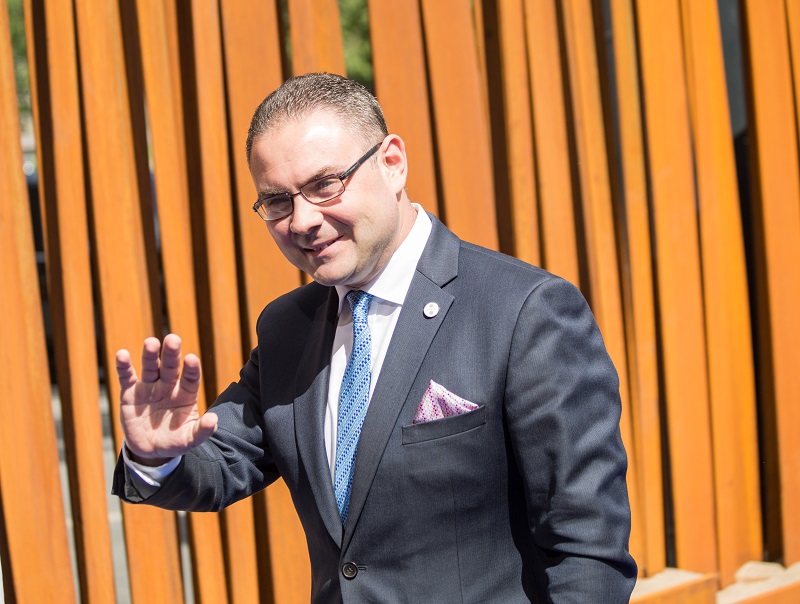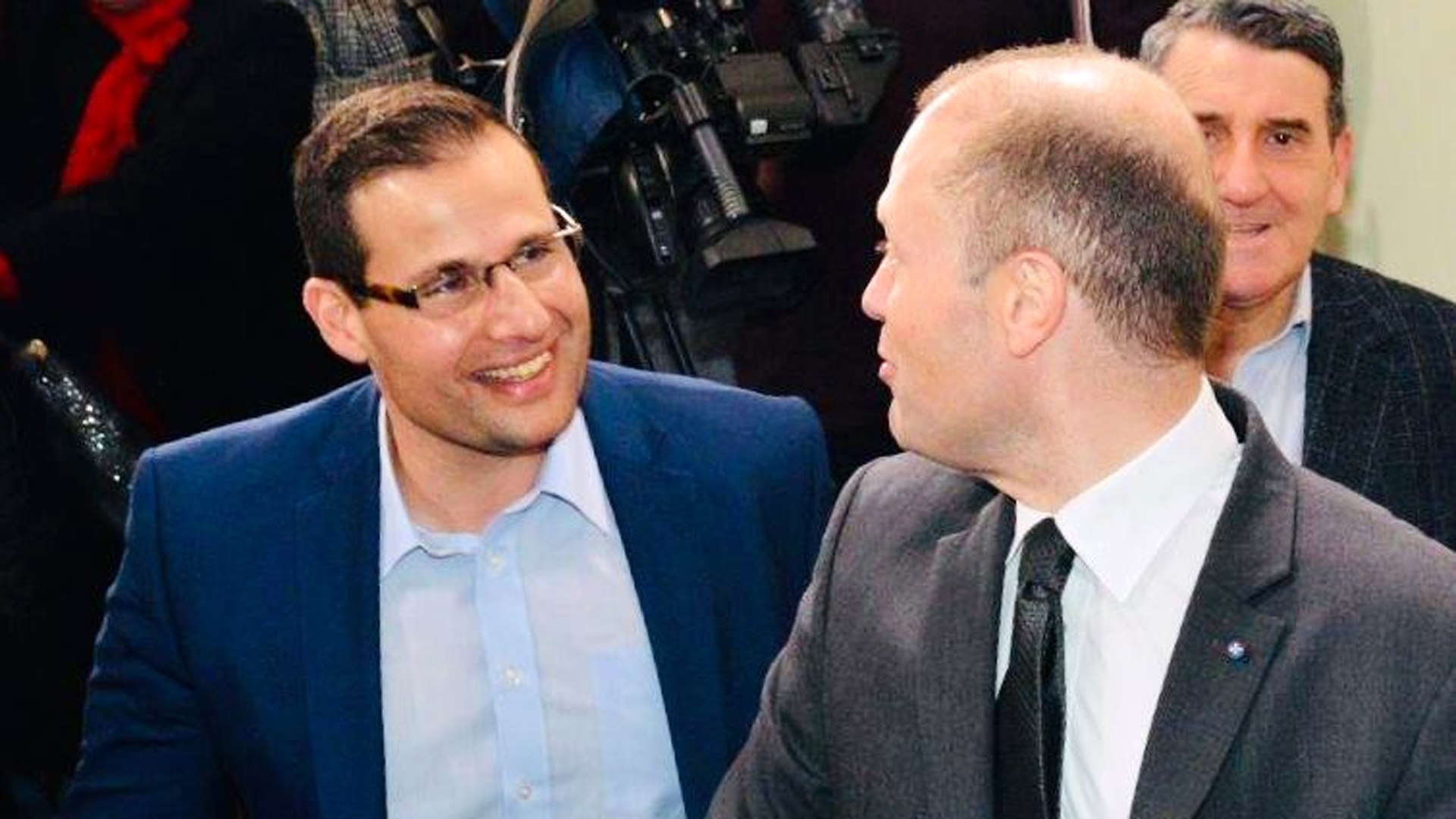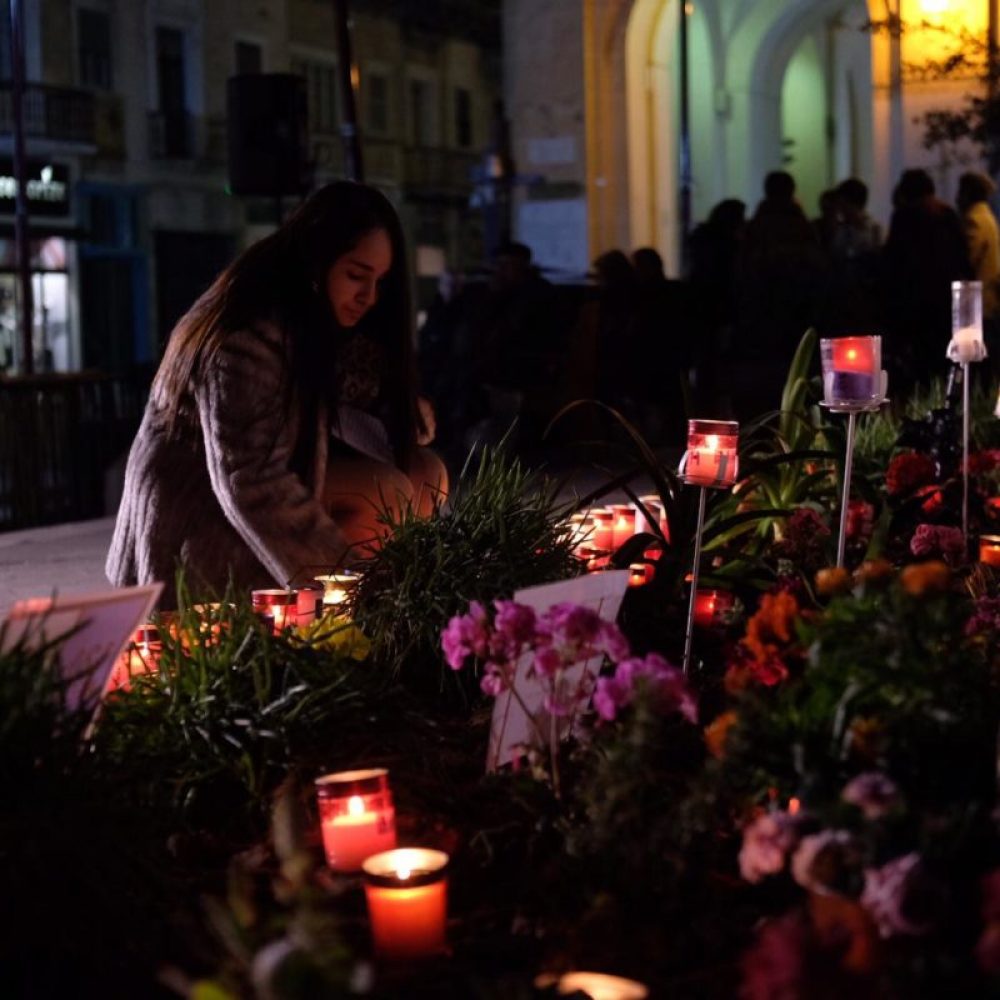Malta’s former Justice Minister was never one of Malta’s sharpest legal minds.
Owen Bonnici famously hit headlines in 2017 for making what looked like a Freudian slip in an interview with Le Monde when he said, “Daphne was killed by politicians … by… excuse me. Daphne was killed by criminals”.
As the public inquiry into her assassination is discovering, that subconscious blunder may have cut close to the truth.
Bonnici took the stand this week, where he told the board he’d felt no need to reply to emails from Henley & Partners, concessionaires of Malta’s cash-for-passports programme, when they consulted with the Maltese government over their intention to sue the journalist to silence her stories. Daphne Caruana Galizia had published the email correspondence.
Former Prime Minister Joseph Muscat had replied: “I don’t object”. And his chief of staff Keith Schembri said: “Thanks, Chris (Henley & Partners Chairman Christian Kalin). This looks good.”
As for Bonnici, rather than preserve press freedom in the face of abusive foreign lawsuits, he shot down a Private Member’s Bill for the protection of Maltese journalists against SLAPP – financially crippling lawsuits filed in foreign jurisdictions.

Bonnici was one of the Muscat government’s staunchest defenders, travelling to Brussels in April 2019 with then Attorney General Peter Grech to answer the Parliamentary Assembly of the Council of Europe’s (PACE) questions about the deteriorating rule of law in his country.
The Council insisted that, according to Article 2 of the European Convention on Human Rights, Malta must hold an impartial public inquiry into whether the State could have prevented Daphne’s death. The government had been fighting it for two years.
Bonnici claimed a public inquiry could not take place because it would interfere with the criminal case against those charged with carrying out her murder, but his objections were eventually overruled.
Bonnici was also the minister responsible for ordering that the protest memorial to the slain journalist be cleared every night for more than two years. Photos of her, as well as tributes and flowers left there by citizens were dumped into trash cans by street cleaners on a daily basis.
When the inquiry board asked him why he had done this, Bonnici said, “I was trying to do my utmost to prevent trouble,” referring to an incident where an elderly man was injured following a scuffle with protestors he had been harassing while they placed their candles and flowers. The 81-year-old man stumbled and fell while taking a swing at a female activist.
Here is a lawyer, the former Justice Minister no less, who has not grasped the first rule of freedom of speech, expression and association — laid down way back in 1882 in Beatty v Gillbanks, namely that when people are lawfully and peacefully exercising a right, if anyone tries to stop them, then the authorities must prevent the others from doing so and not the peaceful protesters.
The Constitutional Court in fact ruled that the Justice Minister had breached activists’ rights by ordering the daily clearance of the protest memorial.
The inept former Justice Minister wasn’t the only top official to testify this week.
Deputy Prime Minister and Health Minister Chris Fearne also took the stand. Like so many other Cabinet members, Fearne distanced himself from responsibility for the corrupt deal that privatised three of Malta’s public hospitals. The Health Minister said he was “not at all involved” despite having been Parliamentary Secretary for Health at the timeand Health Minister since.
No, he claimed, it had all been signed and sealed by disgraced former minister Konrad Mizzi.
As for his views on the Panama Papers scandal that exposed Mizzi and Schembri as having opened offshore tax avoidance structures immediately after being elected to power, Fearne claimed that the man who signed every corrupt deal that tainted Malta since 2013 had been ‘held responsible’ for his crimes.
“The prime minister told me Mizzi would not remain a minister,” Fearne said. “As for Schembri, he told me ‘he is my person of trust and it’s up to me to decide, not Cabinet’”.
Muscat made it clear that Schembri’s position was “not up for discussion”.
“The idea was one of continuity and that ‘Konrad will deliver’,” Fearne told the inquiry.
“Could you live with that?” the lawyer for Daphne’s family asked.
Fearne replied that he had not seen clear evidence of wrongdoing on those specific projects. “Today I might think differently,” he said. Yet the deal remains in place.
Asked why he continued to support the government even after the corruption Daphne wrote about had become obvious to everyone, Fearne claimed to have tried to exert pressure behind the scenes.
Like Foreign Minister Evarist Bartolo, who claimed to have “tried to change at least a millimetre of reality” rather than give up his jobs and perks, Fearne said, “I thought it would have more impact internally.”
With all these high ranking ministers pointing the finger of blame at Mizzi and Schembri, it remains to be seen whether the two will be held accountable, or whether they’ll also try to blame someone else.
As for Muscat, Fearne was asked whether the disgraced former prime minister had ever discussed Daphne’s assassination with him. Fearne said he had, right after the three hitmen accused of planting the bomb were arrested.
“He told me, ‘we’ve solved it’.” But Muscat also played the martyr, telling Fearne: “This is the worst thing that could have happened to me”.
One wonders if he was referring to the assassination, or to those responsible — who might be able to identify the masterminds — getting caught.
The future of the public inquiry remains in question after the board asked for more time beyond its September deadline, and Prime Minister Robert Abela agreed — but only to a one-time extension that would expire in mid-December.
Caruana Galizia family lawyers insisted the public inquiry is impartial and does not require permission from the government to fulfill its mandate.
Predictably, the governing Labour Party struck back, calling it a “time-wasting” game. They want the inquiry to be “concluded expeditiously and according to its terms of reference which were mutually agreed upon with the Caruana Galizia family”.
This is simply not true. Daphne’s family never agreed to a nine-month deadline for the inquiry. The Special Rapporteur of the Council of Europe, Pieter Omtzigt, whose report on Malta forced the government to launch the public inquiry also called out Prime Minister Robert Abela.

“Shocking how Prime Minister Abela of Malta wants to end the public inquiry into the assassination of Daphne Caruana Galizia. ‘Abela was adamant that the chapter must be closed, so that Malta could start working on restoring its damaged reputation.’ That is wrong!” Omtzigt said.
But Joseph Muscat’s army of political and public officials who attack government critics is still working for his hand-picked replacement. Labour MP Glenn Bedingfield, who ran a ‘personal’ blog from the Office of the Prime Minister which was dedicated to attacking Caruana Galizia and discrediting her work, took to Facebook to rally the Party faithful with claims that the inquiry is biased against them.
“When one sees the way the inquiry has been conducted,” he wrote, “it is evident that the process has been marred by ulterior intentions which go against the truth of the facts tied to the assassination itself”.
Bedingfield, too, misses the point. This is not about partisan politics in Malta. This is about human rights.
Bedingfield’s outburst indicates that nothing has changed. The government continues to use its power to attack civil society and journalists — the very same behaviour the public inquiry was tasked with examining in relation to Caruana Galizia’s death.
It’s clear that the originally agreed timeline is no longer feasible. The coronavirus pandemic shutdown caused delays, of course. But it isn’t just that.
Everyone expected the public inquiry to result in shocking revelations, because unlike the endless magisterial inquiries and sham audits, it isn’t being orchestrated by the Party in power.
But the rot of corruption, and the impunity of those at the centre of it, has begun to look bottomless.
Each hearing reveals another layer and adds fresh questions. More witnesses are being added to the roster, and previous witnesses who clearly perjured themselves are being called back.
It’s in the government’s interest to end this uncomfortable examination as quickly as possible. But it’s in Malta’s interests that the inquiry continues to do its work without fear or favour.
The harder the government tries to end this inquiry, the more we wonder what else they’re trying to hide.
The following project is weekly Maltese Roundups prepared by The Shift News (Malta) offering the latest news in Daphne Caruana Galizia case.

